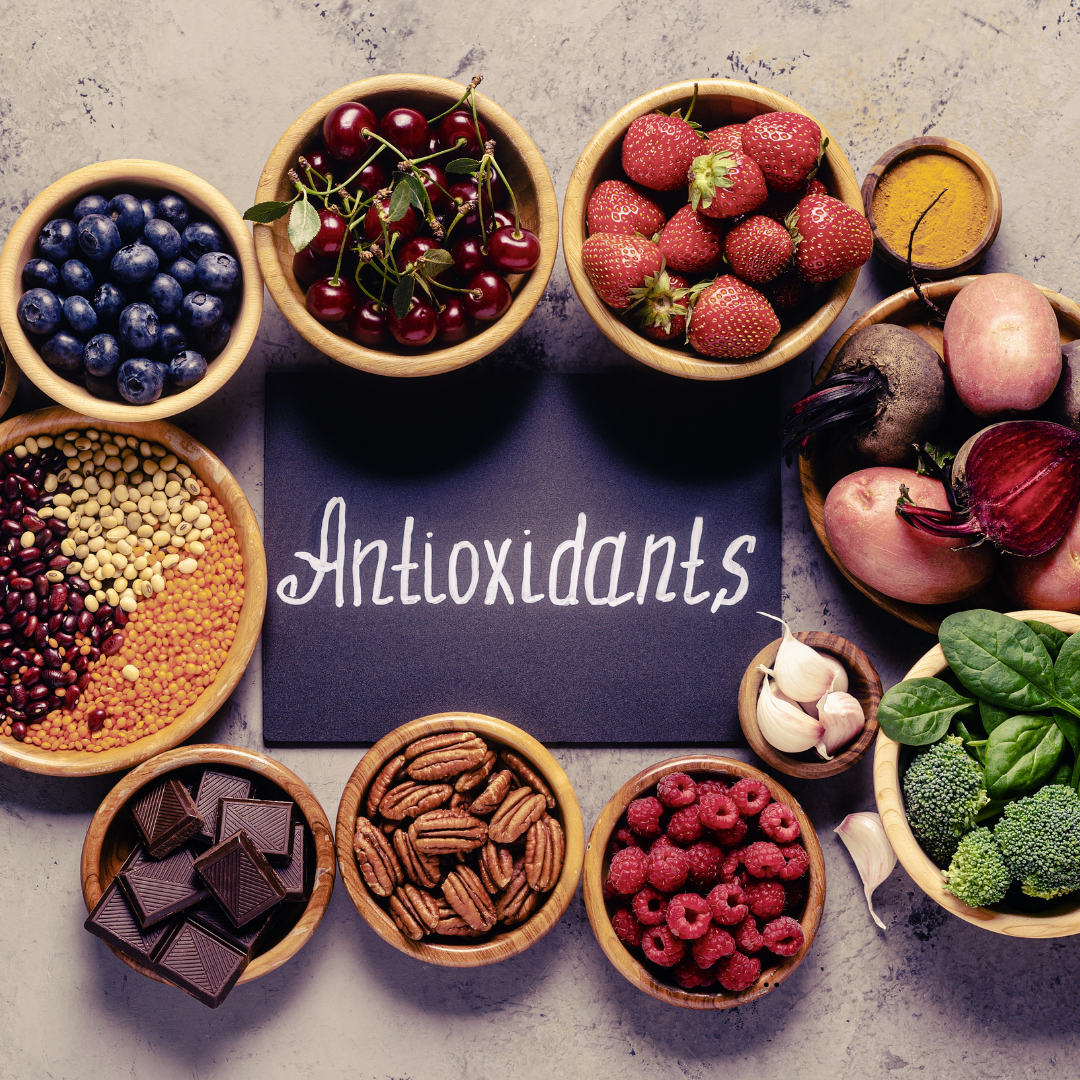How diet can support the long term effects of chronic stress
Have you felt stressed, overwhelmed or burnt out recently? Well you’re not alone. 74% of adults have felt so stressed at some point over the last year, that they felt overwhelmed or unable to cope
With stress affecting the younger generation now more than ever, bringing awareness and ensuring that everyone has the right support and tools to manage stress is vital.
What is stress?
Stress is a natural reaction that your body goes through when we experience change or something challenging. Although often viewed as something negative, stress can be really helpful in small doses; aka acute stress. Stress activates the sympathetic nervous system which prepares the body for “flight, fight or freeze”. We may experience changes in body sensations such as increased heart rate, sweating and it can even affect our digestive system; blood flow gets directed to our muscles to provide us the energy to ‘run’ which can slow down digestion but in some instances, it can speed things up! (Hello nervous poo’s )
As well as changes in our body sensations, stress can actually help keep you alert which can help with focus, attention to detail and motivation (think about when you have a tight deadline to meet, you have that drive and energy to meet it, yet if you have months to complete a task, motivation can often be lacking!)
Where stress becomes problematic is when we experience chronic stress. In order for our sympathetic nervous system to be activated, this requires an influx of cortisol (our stress hormone) and when we experience high cortisol for too long, this can contribute to an entire range of physical and mental health symptoms including weight gain, high blood pressure, muscle pain, acne, anxiety and sleep disturbances. (For more information on how sleep can affect our health and wellbeing, read my latest blog on sleep here)
These symptoms can go on to affect our focus, energy and confidence and so dealing with these symptoms as well as trying to live our daily lives adds an extra burden, making stress very difficult to manage.
Managing Stress
Some effective ways of managing stress can be found through cognitive behavioural therapy (CBT) which helps the individual to understand how certain thought patterns and unconscious beliefs are influencing their behaviour that can lead to worrying feelings of stress, overwhelm and even depression and anxiety. Identifying these thought patterns that influence behaviour can be really helpful when managing stress. Often, when we change our thoughts and beliefs on a situation, it no longer causes that individual the same level of stress as it did before.
Lifestyle changes have also been shown to be an effective way of managing stress including mindfulness, meditation and being in nature. All of these can help us to focus on the present as often stress is bought about by worrying about a future scenario or reflecting on a past event.
But what about nutrition? Can the food we eat which influences every cell in our body and provides us with the raw materials to make messengers that influence our emotions play a role in managing stress?
How can diet help with stress?
Chronic stress has been shown to deplete key nutrients including magnesium, zinc, iron, calcium and B vitamins. These nutrients support the biological processes in our body including methylation and neurotransmitter production that can help with our energy levels, immune system, mood, hormonal balance and cognitive function.
These symptoms associated with nutrient deficiencies can further drive stress as going about our daily lives when we’re constantly catching colds, feeling exhausted and drained can make dealing with even simple day to day tasks a lot harder. If stress depletes nutrients that can affect our physical as well as emotional wellbeing, then ensuring we are meeting our daily nutrient intake should take priority.
Stress has also been shown to contribute to inflammation. Glucocorticoids are hormones produced by the adrenal glands which plays a key role in regulating inflammation. However, chronic stress leads to the gradual development of glucocorticoid resistance which means we no longer get the benefit of it’s anti-inflammatory properties, further driving inflammation. Long term inflammation is linked to many chronic health conditions including Inflammatory bowel disease (IBD), cardiovascular disease and even depression. Research has shown those that follow a mediterranean diet where the focus is on consuming whole foods rich in fruits, vegetables, fibre, healthy fats and protein saw a reduction in inflammatory markers.
Prioritising nutrition during stressful periods
Chronic stress can often be a result of the overwhelm that day to day life can bring. It could be workload, family stressors or physical stressors so if we’re already overwhelmed, how realistic is it to add ‘eating a balanced diet’ to that never ending list? There might also be financial concerns that makes it harder to eat a wholefood diet.
Perfection isn’t the aim here and I wouldn’t recommend completely changing your diet overnight. Making one small, simple change is the best place to start that feels realistic and achievable to you.
5 ways to make small changes to your diet
Frozen vegetables
Not only are frozen vegetables more convenient, but they may even be more nutrient dense than the ones found on the supermarket shelves.
The nutritional value begins to decline the moment plants have been picked; whilst ‘fresh’ ones often travel thousands of miles to the supermarket shelves, frozen plants are frozen soon after being picked.
All the prep has also been done for you, so you simply just need to boil them and add them to your meal to get a hit of antioxidants and fibre!
2. Tinned Fish
Oily fish including salmon, anchovies, mackerel, sardines and herring are a great source of omega 3 and protein which supports inflammation and has been shown to support brain health and cognition which is often affected during stressful periods.
Tinned fish have a long shelf life so can be kept in the cupboard and simply opened and added to a salad or pasta dish or even on toast for a quick boost of protein. If you need some inspiration, check out my Anchovy and olive pastry over on my recipe page.
3. Dark Chocolate
Swap your milk chocolate for dark chocolate. You may not think dark chocolate hits the spot in the same way as milk chocolate but that’s because your brain is used to the sugar that’s in the milk chocolate that keeps you coming back for more. You’ll find that over time, your taste buds will adapt. I also recommend pairing it with a hot drink as this makes the chocolate creamier, giving it the same mouth feel as milk chocolate. Dark chocolate (over 70 %) is packed full of antioxidants and magnesium; one of the calming micronutrients that is often depleted during stress so it’s a great addition to your diet.
4. Eggs
Anyone who knows me, knows I am obsessed with eggs! They are one of the cheapest sources of good quality protein, essential for supporting our mood, and packed full of micronutrients including choline, zinc, selenium and vitamin A that supports a range of bodily functions including cognition, gut health and our nervous system.
They are super simple to make and so diverse. They can be mixed in with rice to make egg fried rice, added to vegetables to make a frittata, muffins or an omelette. They can even be prepped in advance by boiling them and storing them in the fridge to have as a snack or quick breakfast when short on time.
5. Nuts and Seeds
Sprinkle these on your porridge, soups, salads, pastas, omelettes (the list is endless) for an extra burst of healthy fats and micronutrients to support inflammation and hormonal balance.
Stress is multifaceted, and very unique to the individual which can mean that an individual approach to managing stress is needed. However, making simple steps to add in more nutrients to your diet can offer a helping hand to support the very symptoms associated with chronic stress and the long term effects stress can lead to, including inflammation and nutrient deficiencies.
For more information on how nutrition can support stress and mood, as well as tips on how to easily add more nutrients into your diet: download my free eBook ‘Nourish your Gut, Elevate your mood’ today!








